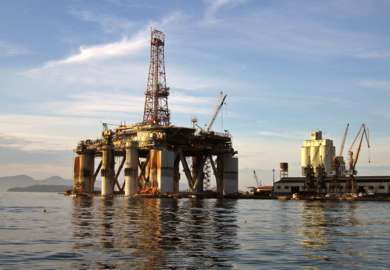20th March 2015
The sticky subject of oil
The price of oil has dropped dramatically, but why aren’t airlines following suit with their surcharges?
Virgin Atlantic recently reported a profit of £14.4million for 2014, compared with a loss of £51 million in 2013. And prior to 2014, it had reported a loss for four of the five previous years.
The expectation has been for massive profits at British Airways and Virgin, which in turn will generate huge dividends to investors, rather than reduced fares to the customer.
BA and Virgin added surcharges to fares as the price of oil soared through the middle of the last decade, but the market price of aviation fuel has fallen 45 per cent since last September. Since fuel is by far the biggest single cost faced by airlines, surely airfares should simply fall in the same way that petrol prices have done? Why are passengers not yet seeing significant fare reductions? There has been very little response to falling fuel prices. Fuel ‘surcharges’ levied by airlines have hardly budged, and certainly not in line with the decrease in the cost of aviation fuel. Virgin bosses credited strategic changes along with operational and cost efficiencies for achieving a return to profitability. As well as its Delta partnership, the carrier benefited from cost reductions, the closure of lossmaking routes and the low oil price. I would be interested to know what percentage of profit was aided by lower fuel costs and when the benefits will be passed on to passengers in the form of fare reductions. I will certainly include the question in any future corporate fare negotiations with Virgin Atlantic.
 3SIXTY Global
3SIXTY Global